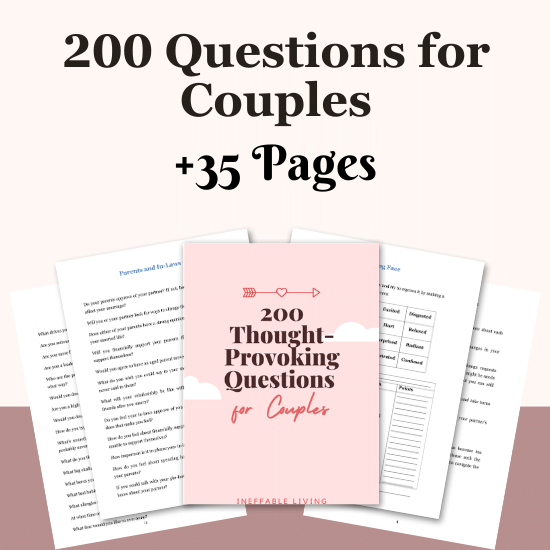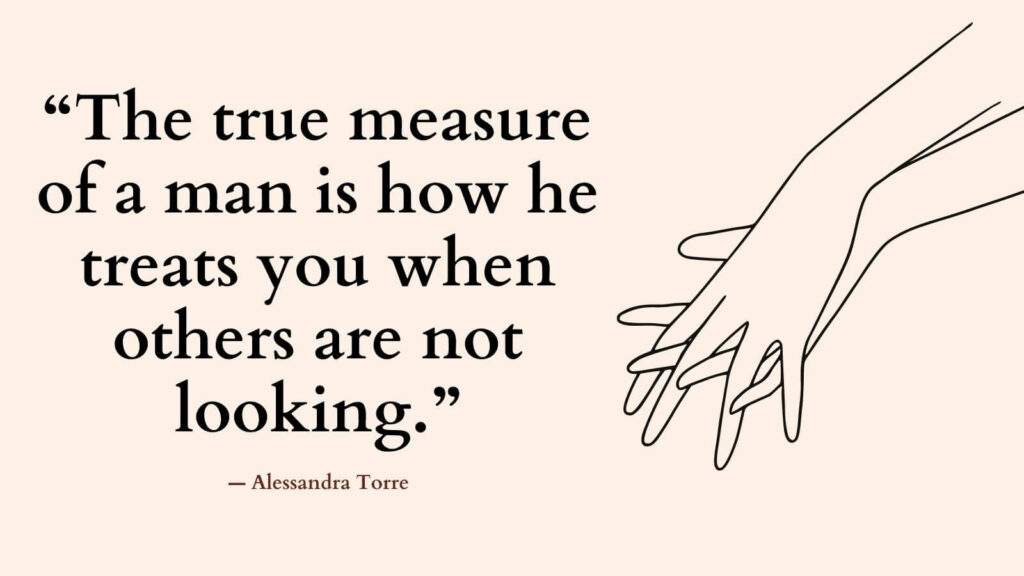This post contains a list of things to talk about before getting into a relationship.
Why Pre-Relationship Conversations Matter
They Build a Foundation of Truth
Being honest early saves you both from misaligned expectations and emotional confusion down the road.
They Prevent Avoidable Conflict
Talking about the real stuff now creates shared understanding — instead of future tension.
They Promote Emotional Safety
The right person won’t be scared off by honesty. They’ll respect it — and match it.
Things To Talk About Before Getting Into A Relationship
Prior to entering into a romantic partnership, discussing certain topics can contribute to building a strong foundation and promoting mutual understanding. Here are several key areas to consider addressing before committing to a relationship:
1. Personal Values and Beliefs
Engaging in conversations about core values, religious beliefs, and ethical principles can provide insight into each person’s worldview and priorities.
Understanding each other’s perspectives on important moral and philosophical matters can help identify areas of alignment and potential areas of divergence.
- What are your core values, and how do they influence your decisions and actions?
- Are there any religious or spiritual beliefs that are important to you, and how do they shape your worldview?
- How do you approach ethical dilemmas, and are there specific principles that guide your moral compass?
Related: Best 100 Let’s Get Deep Questions for Couples
2. Life Goals and Aspirations
Discussing individual goals, professional ambitions, and personal aspirations can foster a shared understanding of each other’s long-term plans.
This dialogue allows for the exploration of potential compatibility in terms of lifestyle, career trajectories, and desired accomplishments.
- What are your long-term career aspirations, and how do you envision your professional growth?
- What personal goals or ambitions are important to you, and how do you plan to pursue them?
- How do you envision balancing career, personal development, and potential family life in the future?
3. Communication Styles
Exploring communication preferences, conflict resolution strategies, and emotional expression patterns can facilitate an understanding of each person’s communication style.
Establishing healthy communication patterns early on can lay the groundwork for effective conflict resolution and emotional support within the relationship.
- What communication patterns or strategies have you found to be effective in past relationships or interactions?
- How do you typically navigate conflicts or disagreements, and what role does effective communication play in resolving conflicts for you?
- In what ways do you express affection, provide support, or seek comfort in close relationships?
Related: 4 Essential Keys To Effective Communication
4. Family Dynamics and Background
Sharing insights into family backgrounds, dynamics, and past experiences can illuminate each person’s upbringing and familial influences.
Understanding family dynamics can aid in comprehending one another’s behaviors, expectations, and attachment patterns.
- Can you share insights into your upbringing and the dynamics within your family?
- What positive influences or challenges from your family background have shaped your views on relationships and emotional connections?
- How do you envision incorporating lessons learned from your family background into potential future family dynamics?
5. Emotional Health and Well-being
Addressing emotional well-being, coping mechanisms, and experiences with mental health can foster a supportive environment where emotional challenges can be openly acknowledged and addressed.
This dialogue can also help individuals navigate potential emotional triggers and provide invaluable insight into each other’s needs for support.
- How do you typically cope with stress, emotional challenges, or difficult situations?
- Have you experienced mental health concerns, and how do you prioritize emotional well-being in your life?
- What forms of emotional support or self-care do you find most beneficial in maintaining balance and resilience?
Related: How To Validate Someone’s Feelings Without Agreeing? (+Examples of Validating Statements)
6. Financial Management and Values
Examining attitudes towards money, financial habits, and long-term financial goals can contribute to a transparent discussion about managing finances within the relationship.
Understanding each other’s approach to financial matters can help mitigate future conflicts related to money management.
- What are your attitudes towards saving, spending, and long-term financial planning?
- How do you approach financial discussions and decision-making within a partnership or shared living situation?
- What are your views on individual financial independence and potential joint financial responsibilities in a committed relationship?
7. Boundaries and Expectations
Exploring individual boundaries, personal space, and expectations within the relationship can establish a framework for respectful and considerate behavior.
Discussing boundaries early on can facilitate the creation of a supportive and mutually fulfilling dynamic.
- What personal boundaries or space do you value in relationships, and how do you communicate these boundaries to others?
- Are there specific expectations or needs you have regarding communication, time together, or personal freedom within a relationship?
- How do you navigate differences in expectations or boundaries between partners while maintaining mutual respect and understanding?
Related: How To Respond To Invalidation? Top 7 Things You Can Do
8. Intimacy and Relationship Expectations
Discussing intimacy preferences, relationship pacing, and expectations regarding exclusivity can lead to a shared understanding of each person’s emotional and physical needs within the relationship.
These conversations can promote intimacy and trust while aligning expectations.
- What forms of intimacy—emotional, physical, or intellectual—do you prioritize in a romantic relationship?
- What are your expectations regarding exclusivity, commitment, and the pace of relationship progression?
- How do you approach discussing and addressing potential challenges or changes in intimacy within a long-term relationship?
9. Children and Family Planning
Addressing perspectives on children, family planning, and parenting styles is essential for individuals considering a committed relationship.
Aligning expectations regarding parenthood, raising children, and family dynamics can contribute to a shared vision for the future.
- How do you envision incorporating parenthood or family planning into your future goals and aspirations?
- What are your perspectives on parenting styles, family traditions, and creating a nurturing environment for children?
- In what ways do you view children as contributors to a fulfilling family dynamic and shared life goals within a partnership?
Related: How to Respond When Someone Is Being Vulnerable?
10. Cultural and Social Identities
Exploring cultural backgrounds, social identities, and experiences with discrimination can foster a deeper understanding of each person’s unique identity.
Acknowledging cultural nuances and social experiences can promote empathy and inclusivity within the relationship.
- Can you share experiences related to your cultural background, social identity, or encounters with discrimination or bias?
- How do you celebrate and incorporate aspects of your cultural heritage or social identity into various aspects of your life?
- What role do cultural nuances and social identities play in shaping your worldview, values, and relationships?

Conclusion
Approaching these topics with openness, empathy, and a genuine interest in understanding each other can foster a strong sense of connection and mutual respect.



